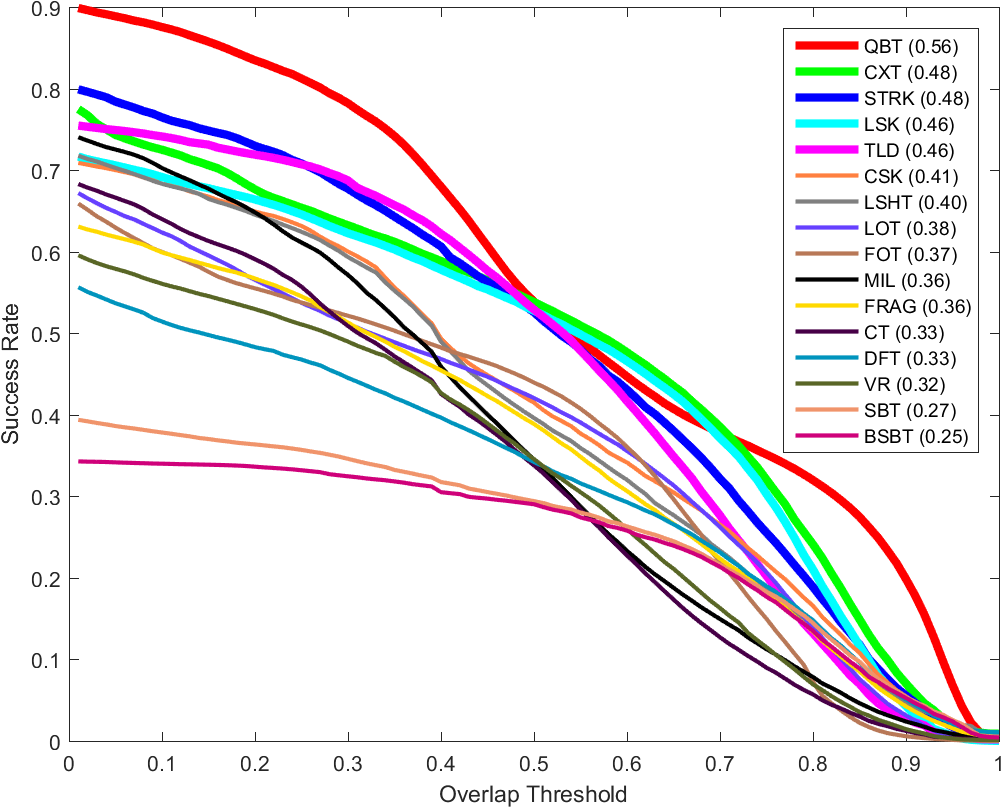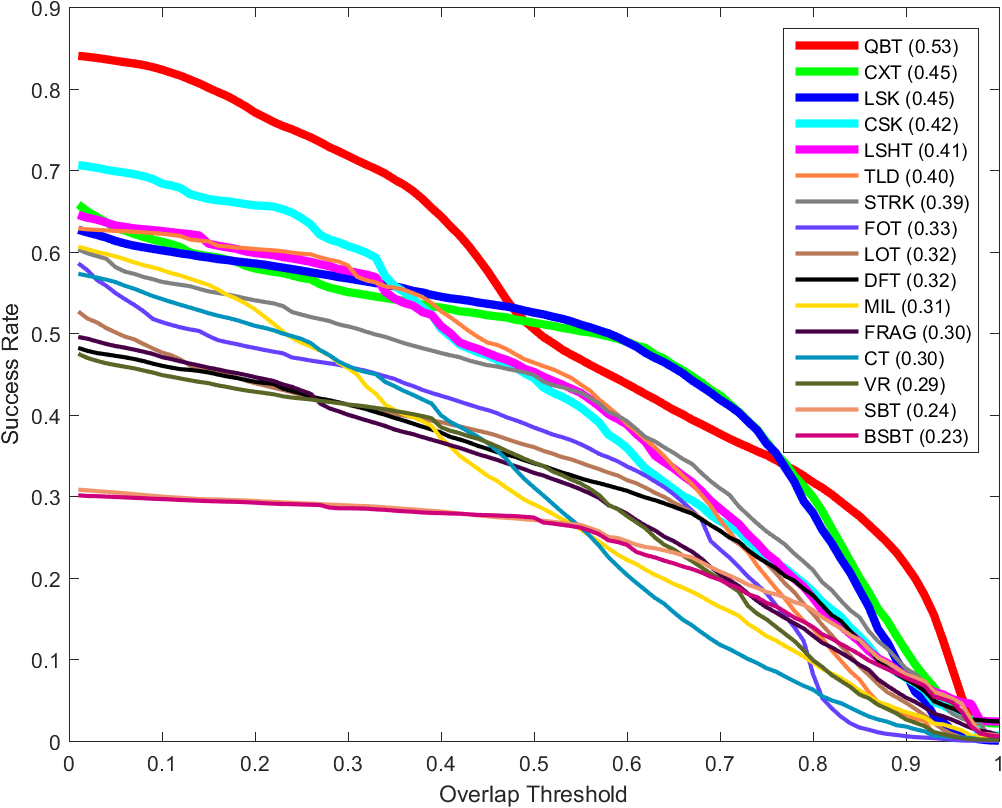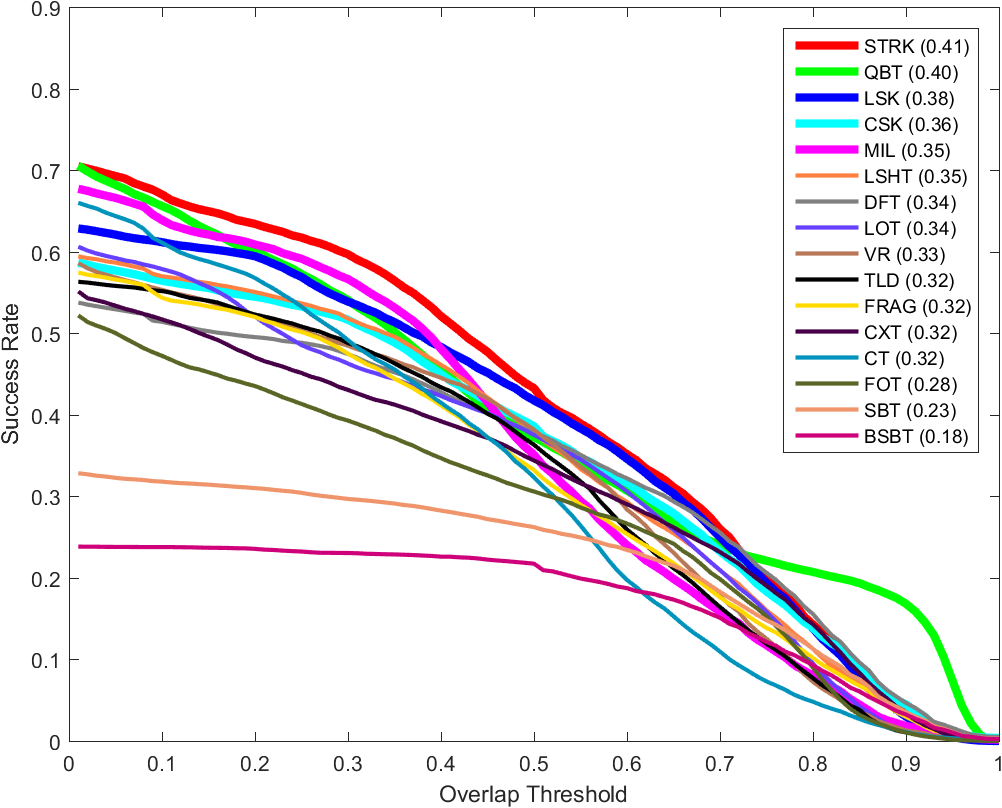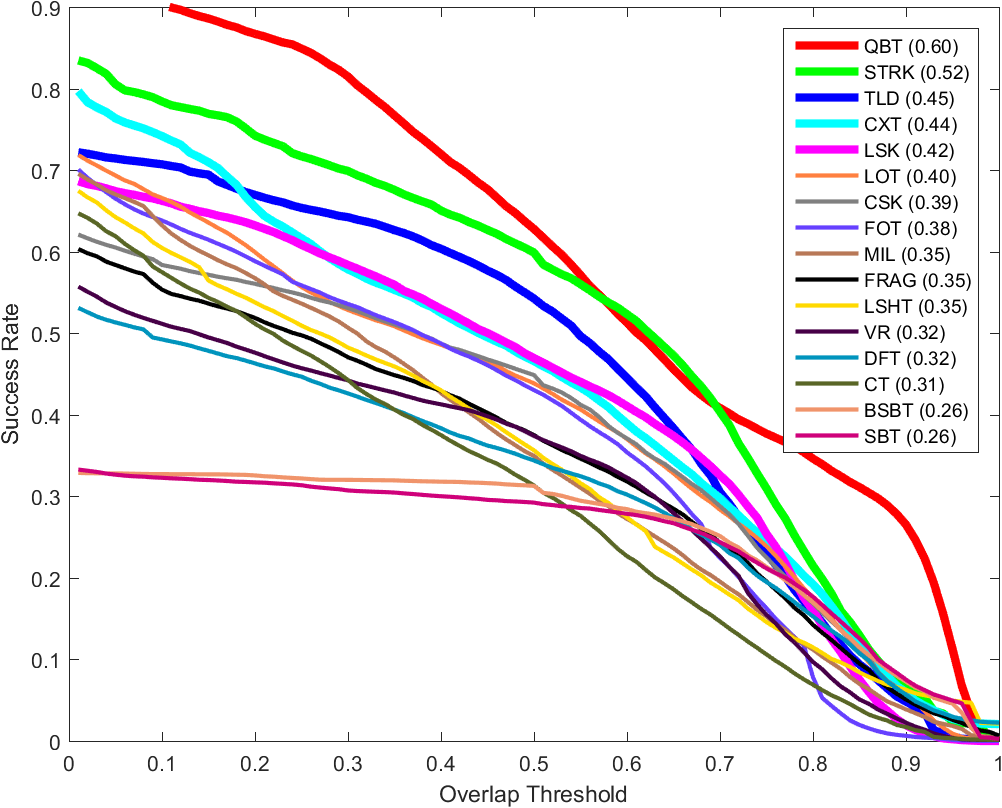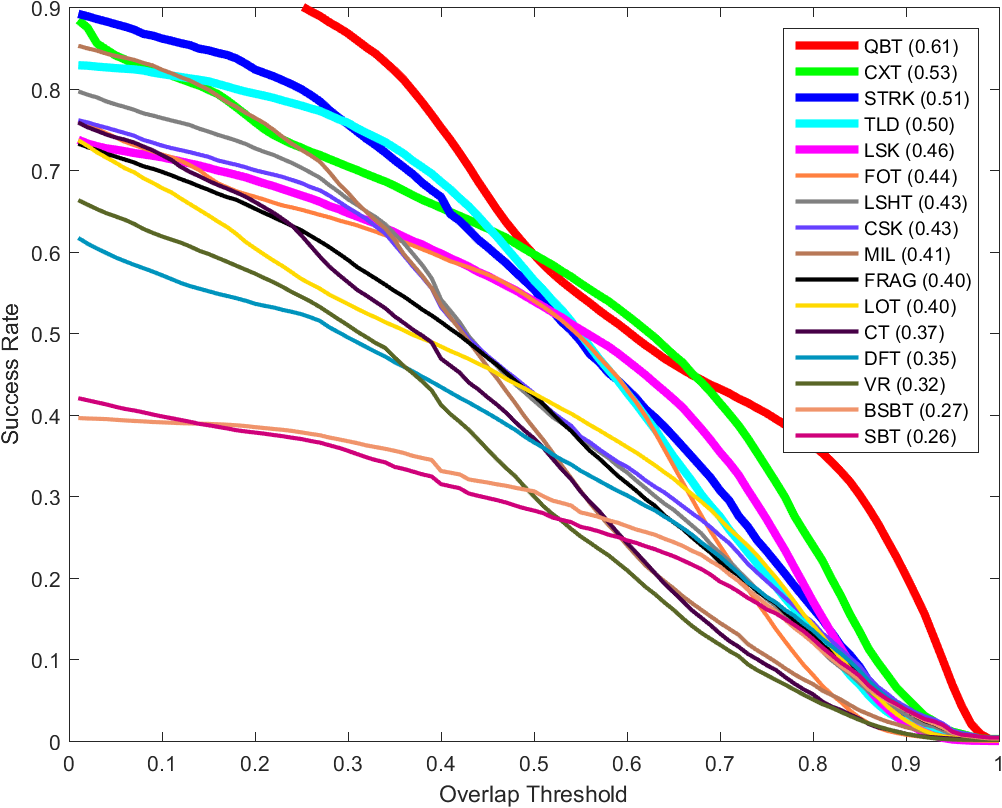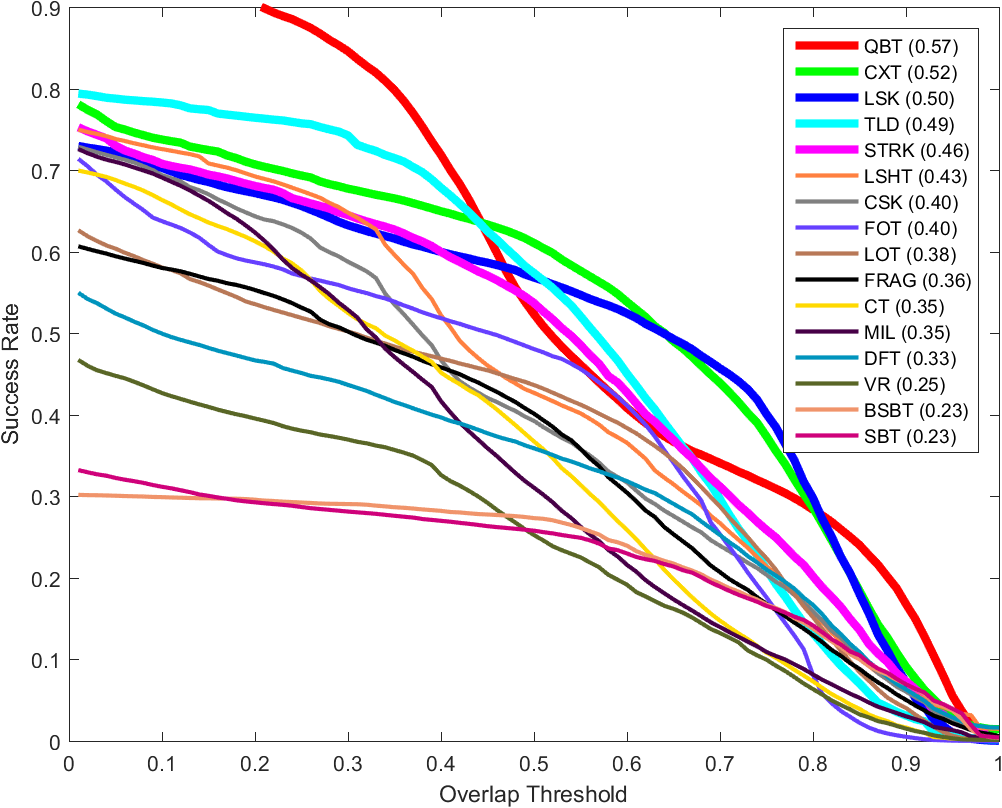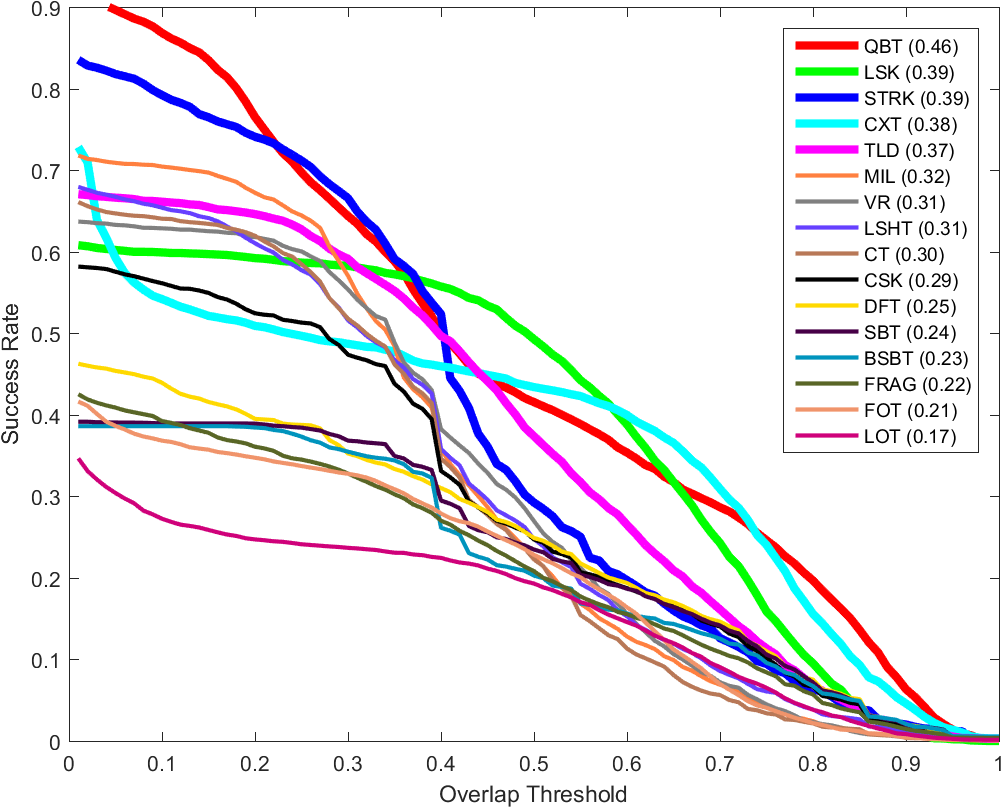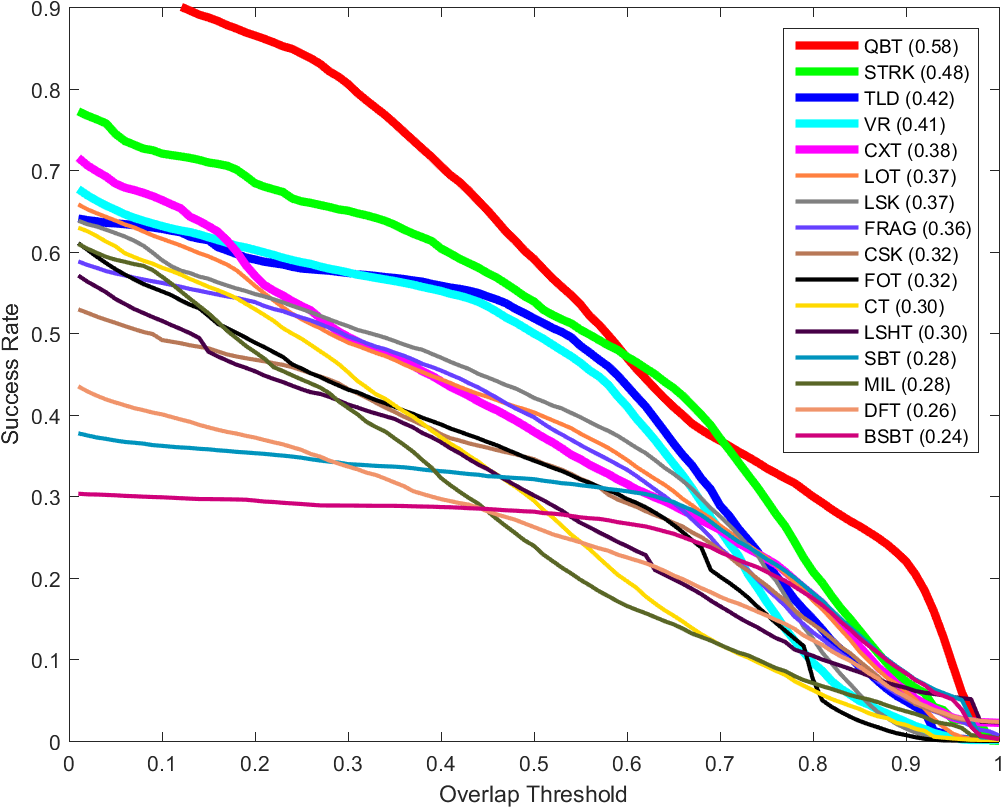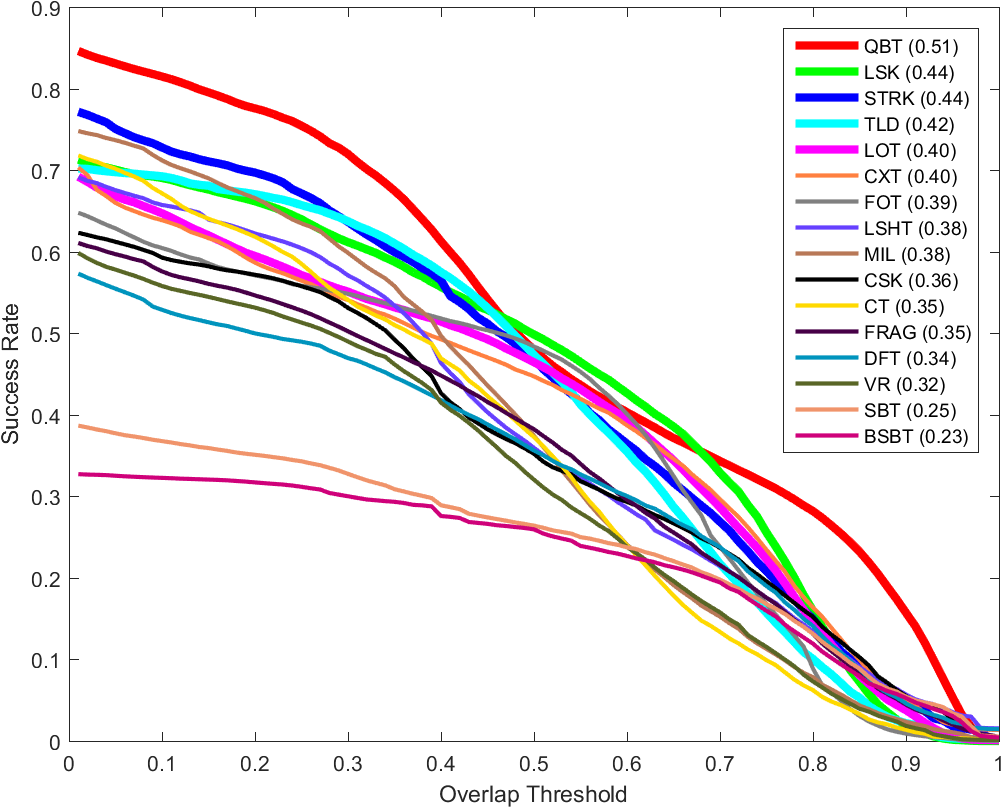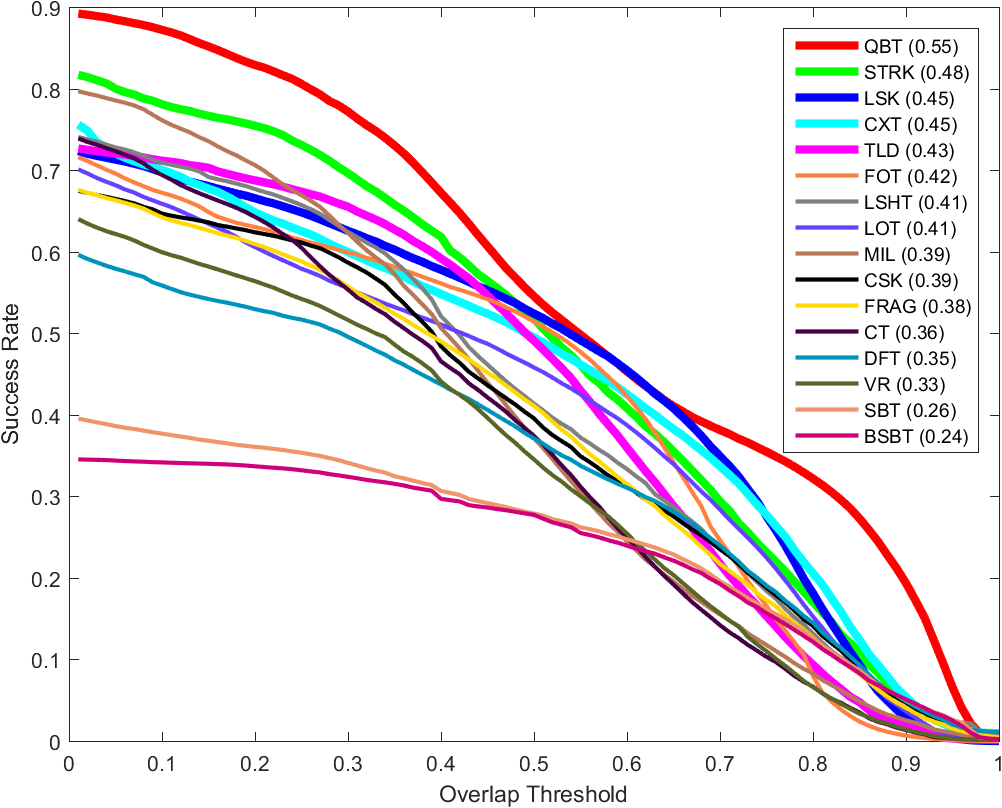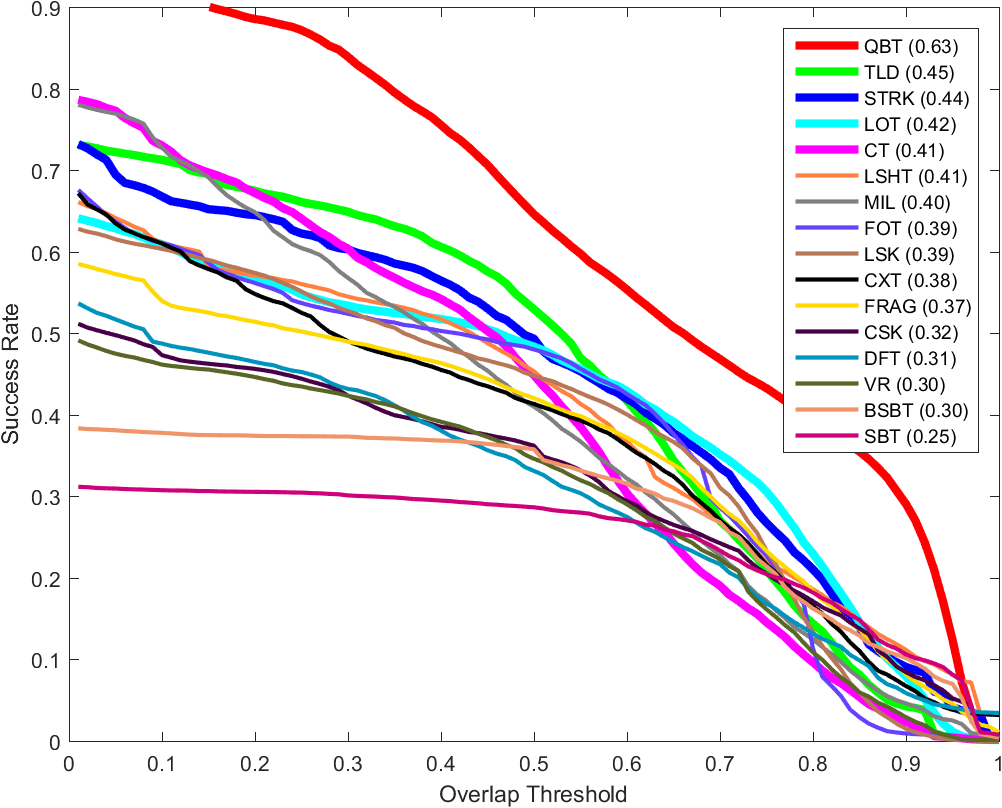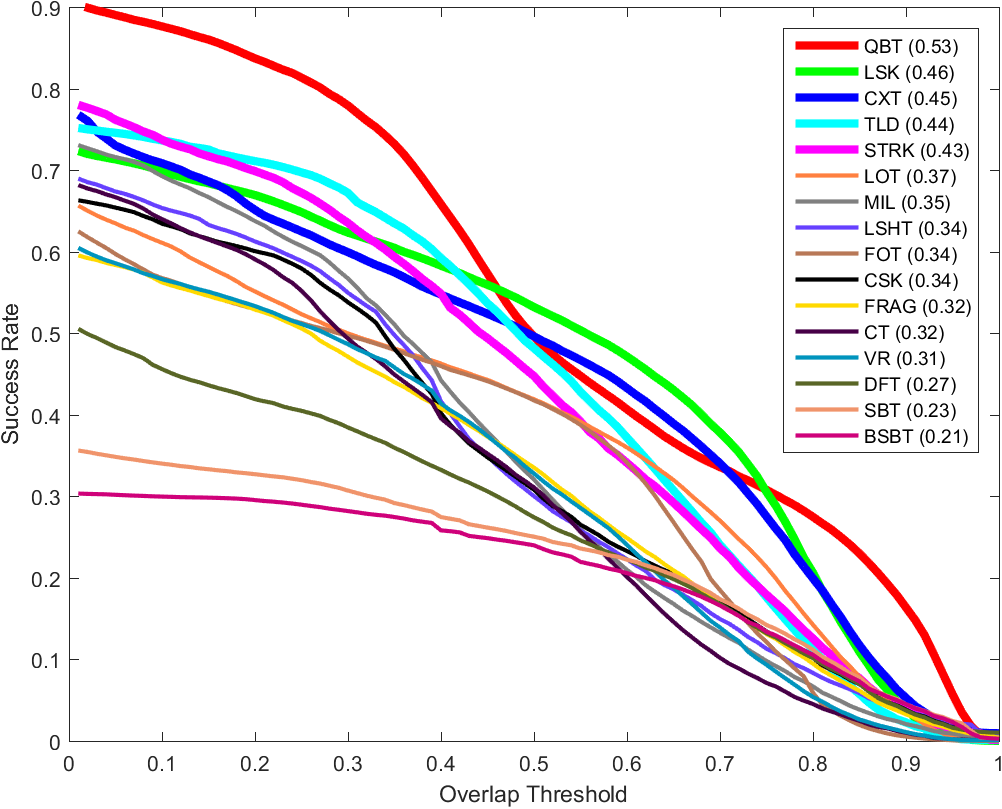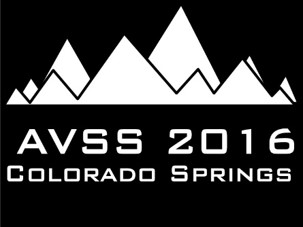Robust Discriminative Tracking via Query-by-Bagging
13th International Conference on Advanced Video and Signal-Based Surveillance (AVSS.16), Colorado Springs, USA, August 23-26, 2016.
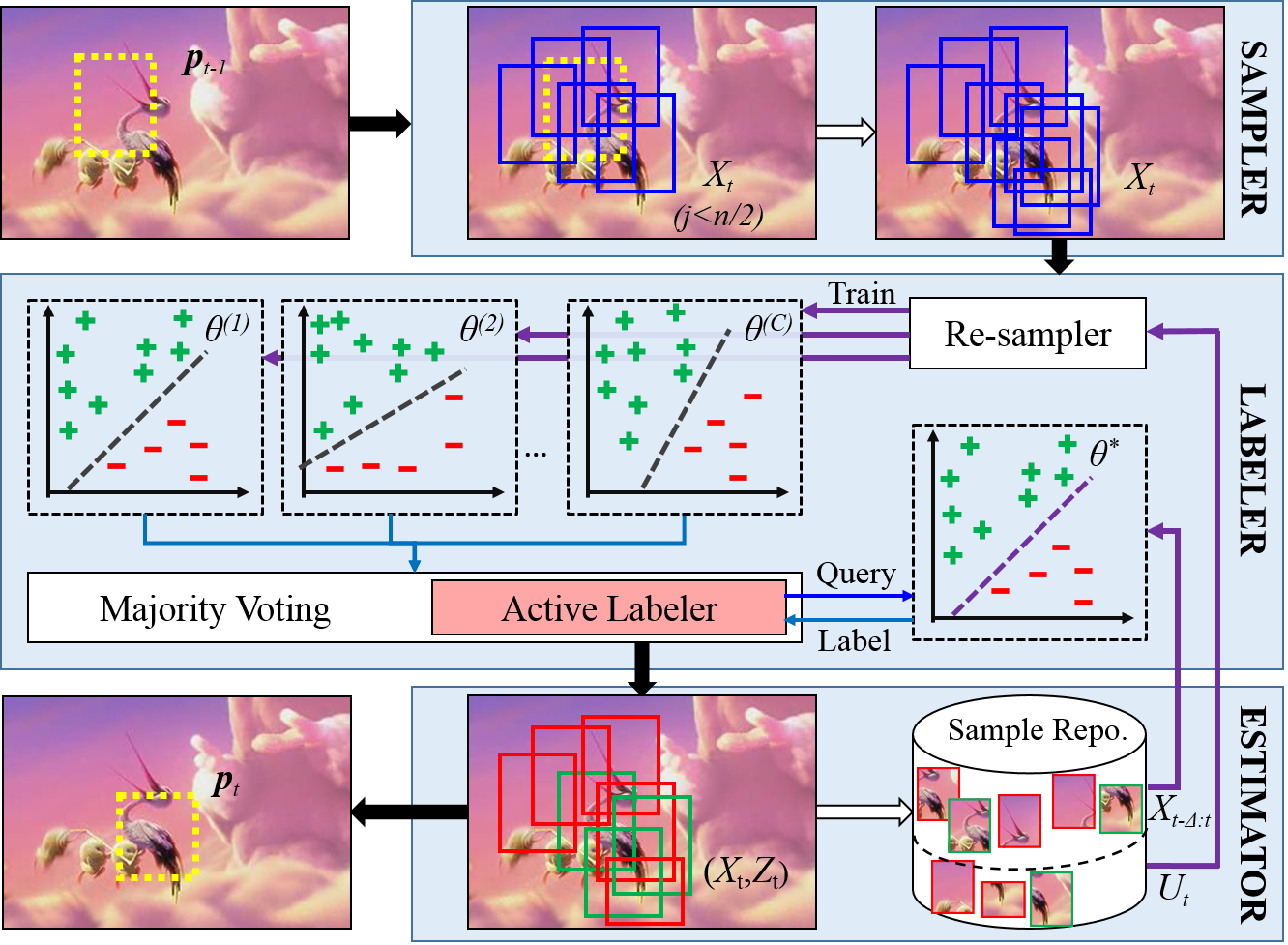
Adaptive tracking-by-detection is a popular approach to track arbitrary objects in various situations. Such approaches treat tracking as a classification task and constantly update the object model. The update procedure requires a set of labeled examples, where samples are collected from the last observation, and then labeled. However, these intermediate steps typically follow a set of heuristic rules for labeling and uninformed search in the sample space, which decrease the effectiveness of model update. In this study, we present a framework for adaptive tracking that utilizes active learning for effective sample selection and labeling them. The active sampler employs a committee of randomized-classifiers to select the most informative samples and query their label from an auxiliary detector with a long-term memory. The committee is then updated with the obtained labels. Experiments show that our algorithm outperforms state-of-the-art trackers on various benchmark videos.
Overview
Different adaptive tracking-by-detection paradigms: given the current estimated object location, these approaches generate a set of samples and, depending on the type of learner, produce training labels. Active learning, utilizes the most informative samples to efficiently and effectively update the learner. Unlike others, Struck and operates directly on the tracking output.
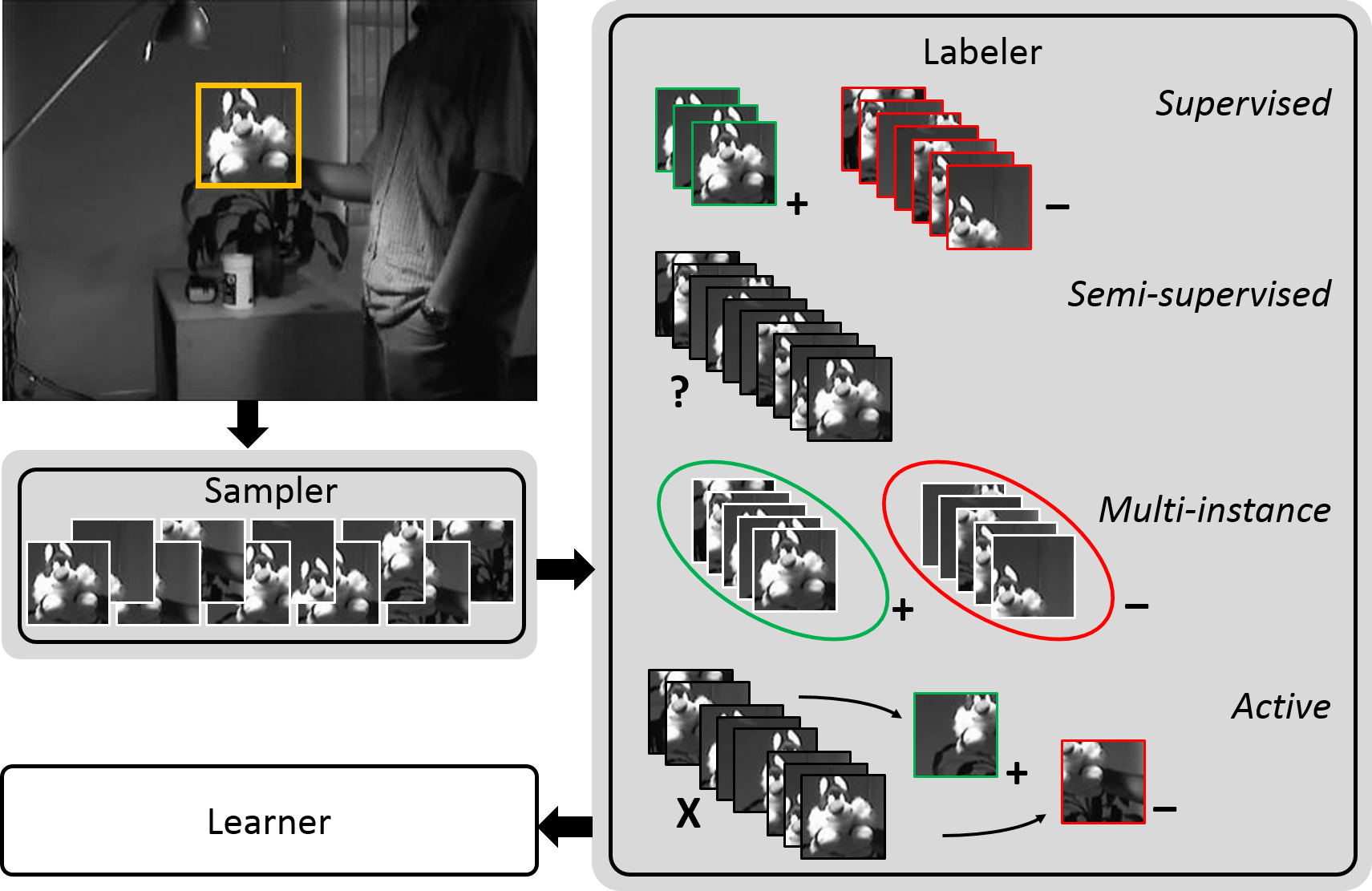
-
There are a multitude of drawbacks in the tracking-by-detection setting:
- The sampling in search space is sparse, uninformed and ignores the information contained in each sample about its local neighborhood. In this way, the tracker miss the promising regions of the search space, and blindly examine many possible transformations before finding the optimal one,
- Classifier is trained using all the examples with equal weights, meaning that negative examples which overlap very little with the target bounding box are treated equally as those negative examples with significant overlaps. Even the slightest tracking error, may lead to poorly labeled examples that cause the tracker to drift,
- The labeler is typically build upon heuristics and intuitions, rather than using the accumulated knowledge about the target for example. Mistakes in labeling confuses the classifier and is known as label noise problem,
- Adaptive trackers inherently suffer from drifting problem, if the update rate is small, the changes of the target are not reflected into target’s template, whereas rapid update of the tracker render it vulnerable to data noise and small target localization errors. This is another instance of stability plasticity dilemma
We propose Query-by-Bagging Tracker (QBT), which adjust QBag algorithm for online training to solve the label noise problem. Additionally, the drift problem is handled with the use of a dual-memory strategy, where the committee adapts to the changes of target rapidly, whereas the oracle possesses a longer memory to promote the stability of the target template. Furthermore, a k-means-like approach is proposed to improve the sampling process and the tracker considers a weighted vote of the samples to estimate the target location and scale.
Success Plots
Qualitative Results
Snapshot Video
Poster
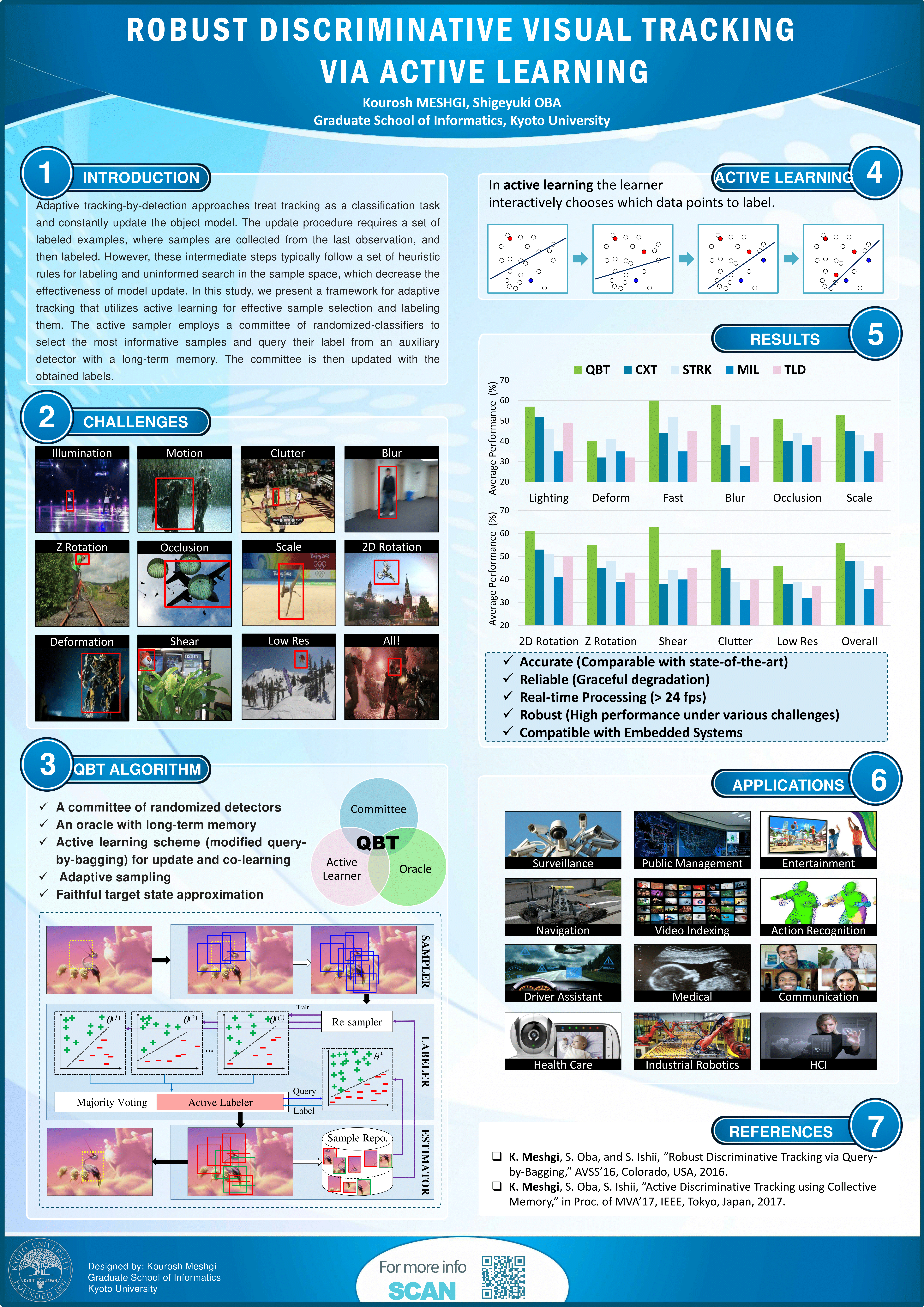 Presented @ ICT Innovation 2016
Presented @ ICT Innovation 2016BibTex reference
Download Citation , Google Scholar
@inproceedings{meshgi2016qbt,
author={K. Meshgi and S. Oba and S. Ishii},
booktitle={2016 13th IEEE International Conference on Advanced Video and Signal Based Surveillance (AVSS)},
title={Robust discriminative tracking via query-by-bagging},
year={2016},
volume={},
number={},
pages={8-14},
keywords={object tracking;query processing;adaptive tracking;adaptive tracking-by-detection;benchmark videos;effective sample selection;heuristic rules;object model;query-by-bagging;robust discriminative tracking;sample space;state-of-the-art trackers;track arbitrary objects;uninformed search;Adaptation models;Bagging;Detectors;Labeling;Robustness;Target tracking;Training},
doi={10.1109/AVSS.2016.7738027},
ISSN={},
month={Aug},
}
Acknowledgements
This article is based on results obtained from a project commissioned by the New Energy and Industrial Technology Development Organization (NEDO).
For more information or help please email meshgi-k [at] sys.i.kyoto-u.ac.jp.
